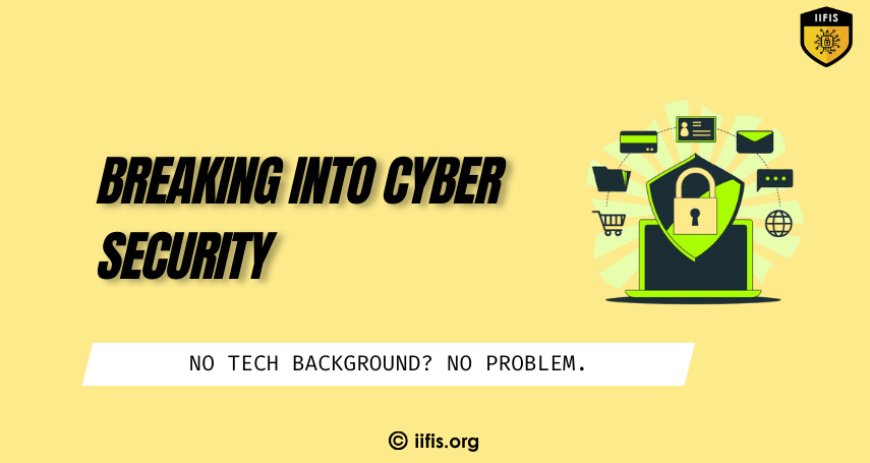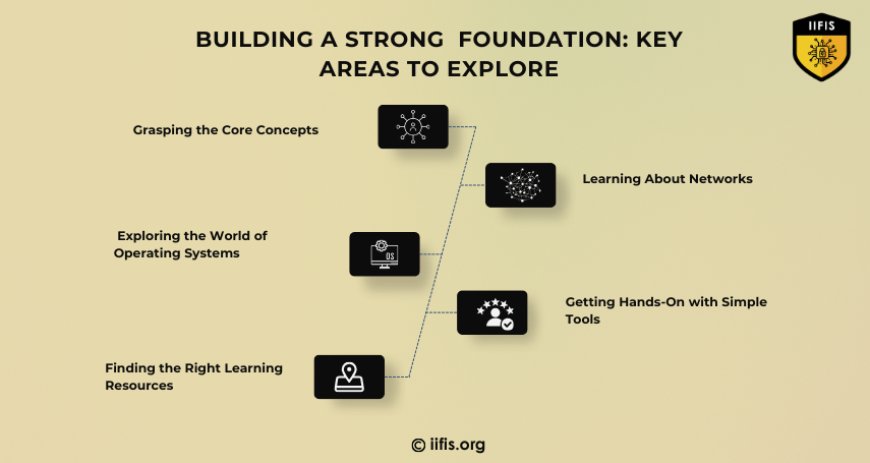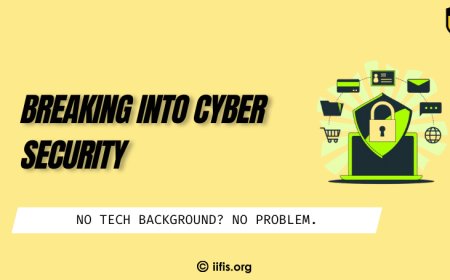Breaking Into Cyber Security: No Tech Background? No Problem.
Interested in cybersecurity but no tech background? Discover how to get started, build key skills, and launch your career with easy, actionable steps.

When I first considered a career in cybersecurity, I had zero technical experience, no coding skills, no IT background, and honestly, no clue where to start. But today, I can confidently say that I’ve carved out a fulfilling career in cybersecurity, and if I can do it, so can you.
The Turning Point: Why I Chose Cybersecurity
It all started when I realized how critical cybersecurity is in today’s digital world. Data breaches, hacking incidents, and security threats were everywhere, and I knew I wanted to be part of the solution. But the thought of starting over in a tech-heavy field felt overwhelming.
I had to ask myself, “Is it even possible to get into cybersecurity without knowing how to code?” The answer? Yes.
The First Step: Understanding the Basics
When I decided to break into cybersecurity, I knew I had to start somewhere. The vast world of networks, firewalls, encryption, and threat management felt overwhelming at first. But I soon realized that understanding the basics was the key to building a solid foundation.
Here’s how I approached it:
1. Grasping the Core Concepts
I started with the fundamental principles of cybersecurity, such as
-
What is cybersecurity? Understanding its role in protecting data, systems, and networks from unauthorized access and cyber threats.
-
Types of threats: Learning about malware, phishing, ransomware, DDoS attacks, and more.
-
Basic security principles: Confidentiality, Integrity, and Availability (CIA Triad)—the cornerstone of security practices.
2. Learning About Networks
I realized that to understand cybersecurity, I needed to understand how networks work. So, I explored:
-
How the internet functions: Concepts like IP addresses, DNS, HTTP/HTTPS, and how data travels.
-
Networking devices: Routers, switches, and firewalls, and how they help manage and secure data traffic.
-
Basic protocols: TCP/IP, UDP, and FTP, and why they matter in securing communications.
3. Exploring the World of Operating Systems
I also learned about different operating systems, particularly Linux, which is widely used in cybersecurity environments. I got familiar with
-
Linux basics: Terminal commands, file systems, permissions, and user management.
-
Windows security: Understanding Active Directory, Group Policies, and basic Windows security features.
4. Getting Hands-On with Simple Tools
Theory alone wasn’t enough—I needed practical experience. So, I started experimenting with basic cybersecurity tools:
-
Wireshark: To analyze network traffic and see how data packets move across networks.
-
Nmap: For network discovery and security auditing.
-
Virtual machines: Setting up a lab environment to practice safely without risking real systems.
5. Finding the Right Learning Resources
I didn’t know where to start at first, but here’s what helped me:
-
Online platforms like Cybrary, Coursera, and Udemy offer beginner-friendly cybersecurity courses.
-
YouTube tutorials: Channels like NetworkChuck and The Cyber Mentor break down complex topics in an easy-to-understand way.
-
Books: “The Web Application Hacker’s Handbook” and “Hacking: The Art of Exploitation” are great reads for diving deeper into cybersecurity concepts.
The Importance of Curiosity and Questions
One thing I learned is that curiosity is your best friend in cybersecurity. I kept asking questions like:
-
Why do certain attacks work?
-
How do hackers exploit vulnerabilities?
-
What can I do to defend against these threats?

Building Practical Skills: From Theory to Practice
While theory was important, I realized that practical experience was key. I started with simple, hands-on projects like setting up a home lab using virtual machines. This helped me understand how systems work and how to simulate security attacks and defenses.
I also explored tools like Wireshark for network analysis and learned the basics of Linux, which is widely used in cybersecurity. The goal wasn’t to become an expert overnight but to get comfortable with the tools and environments professionals work with.
The Certifications That Helped Me Start My Cybersecurity Career
-
Why I Chose Certifications: To prove my cybersecurity skills to employers.
-
First Certification: Cyber security certification for beginners, covering network security, risk management, and threat recognition.
-
Study Challenges: It was tough, but it boosted my confidence to apply for cybersecurity jobs.
-
Gaining Experience: After landing my first job, I pursued advanced certifications like Certified Ethical Hacker (CEH) and Certified Information Security Professional (CISP).
-
Career Growth: These certifications helped me get better job opportunities and grow in my cybersecurity career.
My Journey to Landing My First Cybersecurity Job
-
The Struggle Was Real: Finding my first cybersecurity job wasn’t easy—I faced many rejections but stayed motivated.
-
Crafting a Strong Resume: I focused on transferable skills like problem-solving, analytical thinking, and attention to detail, which are crucial in cybersecurity.
-
The Power of Networking: I joined cybersecurity forums, attended virtual meetups, and connected with industry professionals on LinkedIn to learn more and discover job openings.
-
Learning from Others: Engaging with the cybersecurity community helped me gain valuable insights and open doors to job opportunities.
-
Landing My First Role: After persistence, I secured a job as a Security Analyst, where I:
-
Monitored network traffic to spot unusual activities
-
Identified system vulnerabilities
-
Responded to security threats and incidents
-
A New Beginning: While it wasn’t a perfect role, it was the crucial first step that helped me grow in the cybersecurity field.
You Can Do It, Too
Breaking into cybersecurity without a tech background is challenging, but it’s possible. The key is to stay persistent, keep learning, and embrace the journey.
If you’re thinking about leaping into cybersecurity, don’t hesitate. The field is dynamic, rewarding, and in high demand. And who knows? Your story might be the next one I’m sharing to inspire others.
If you have any queries related to any topics of cybersecurity topics. Comment on the topic; we will try to give information about the topic
























